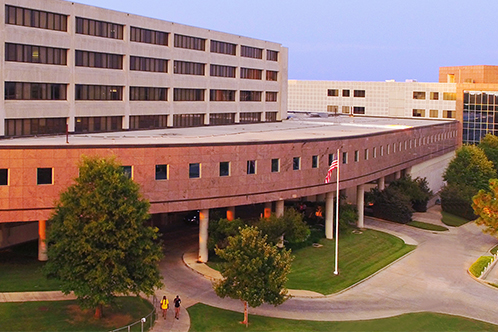- Medical Services
- Urology
- Conditions We Treat
- Kidney Stones

Kidney Stones
North Mississippi Health Services offers diagnosis and treatment for kidney stones including outpatient lithotripsy.
Need help finding a urologist?

Getting You to the Right Care
A urologist is available every day to promptly treat kidney stones. Our goal is to help our patients through a very difficult, painful time as efficiently as possible.
- During business hours, call a urologist & ask for a nurse.
- If you need help finding a urologist, call 1-800-THE DESK.
- After hours, call Nurse Link at 1-800-882-6274.
Kidney stones typically form during the hot summer months when it is easy to get dehydrated without realizing it.
As a result, the urine made in the kidneys becomes concentrated and can lead to the formation of tiny urinary crystals. These crystals are the earliest stages of kidney stones. Over time, the stones can grow in the kidneys without causing any symptoms.
The trouble comes when a piece of the stone breaks off and becomes lodged in the tube leading from the kidney to the bladder. The pain comes from urine backing up into the kidney. Symptoms include:
Flank or side pain, which can be severe
Nausea & vomiting
Blood in the urine
Your urologist will evaluate your symptoms and medical imaging studies and determine the best plan of action.
A CT scan is used to determine the size of the stone, obstruction & location.
Medications can help the stone pass on its own.
Medications can used to manage pain, nausea & vomiting.
If stone is unlikely to pass on its own, same-day procedures are available.
Non-invasive lithotripsy (ESWL) uses sound waves to break up stone so it passes.
Laser lithotripsy directly breaks up the stone, and the pieces are removed.
Both types of lithotripsy are outpatient procedures; no overnight stay required.
Kidney Stone Prevention
With kidney stones, the best defense is a good hydration strategy. Unless you have a medical condition that limits your fluid intake, drinking water consistently throughout the day is the best way to stay hydrated.
Rehydrating with the wrong beverages can leave some people prone to kidney stones. Tea – both sweetened and unsweet, caffeinated or decaffeinated – can contribute to kidney stone formation. Tea contains minerals called oxalates that turn urine crystals into full-fledged kidney stones.
For people who have been treated for kidney stones, your urologist will evaluate what contributed to the formation of your kidney stones and recommend preventive measures. Those measures can include a change in diet and possibly medications.
